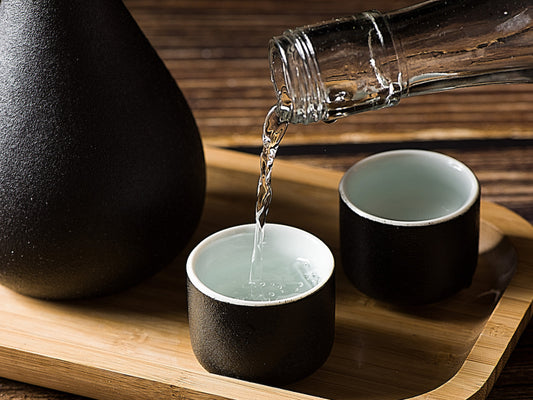Shotengai Magazine

All You Need To Know About Shochu
Japanese shochu is a traditional distilled liquor produced in Japan. It comes from ancient China. Among the main islands of Japan, the Southern Kyushu region was the first area to produce shochu. It's popular in izakaya as a...
All You Need To Know About Shochu
Japanese shochu is a traditional distilled liquor produced in Japan. It comes from ancient China. Among the main islands of Japan, the Southern Kyushu region was the first area to produce shochu. It's popular in izakaya as a...

Showa Commemorative National Government Park: R...
Showa Commemorative National Government Park (Showa Memorial Park) is a national park built on the former site of the Tachikawa Airfield to commemorate the 50th anniversary of the reign of Emperor Showa....
Showa Commemorative National Government Park: R...
Showa Commemorative National Government Park (Showa Memorial Park) is a national park built on the former site of the Tachikawa Airfield to commemorate the 50th anniversary of the reign of Emperor Showa....

What is Geta? Unveiling the Timeless Appeal of ...
Geta has woven itself into the fabric of Japanese culture. Its evolution from a practical solution for muddy terrain to a symbol of cultural identity showcases the adaptability and timelessness of...
What is Geta? Unveiling the Timeless Appeal of ...
Geta has woven itself into the fabric of Japanese culture. Its evolution from a practical solution for muddy terrain to a symbol of cultural identity showcases the adaptability and timelessness of...

Discover Japan's Beloved Mugicha: Wholesome Bar...
Barley Tea (mugicha) is a soothing and refreshing beverage deeply intertwined with Japanese culture and history. Its mild and soothing flavor, along with its numerous health benefits, makes it a beloved beverage...
Discover Japan's Beloved Mugicha: Wholesome Bar...
Barley Tea (mugicha) is a soothing and refreshing beverage deeply intertwined with Japanese culture and history. Its mild and soothing flavor, along with its numerous health benefits, makes it a beloved beverage...

Shinjuku Gyoen: Tokyo's Urban Oasis
Spanning over 580,000 square meters, Shinjuku Gyoen encompasses Japanese, French formal, and English landscape gardens. Its rich history, distinctive garden styles, and cultural significance make it a must-visit destination for anyone exploring Tokyo.
Shinjuku Gyoen: Tokyo's Urban Oasis
Spanning over 580,000 square meters, Shinjuku Gyoen encompasses Japanese, French formal, and English landscape gardens. Its rich history, distinctive garden styles, and cultural significance make it a must-visit destination for anyone exploring Tokyo.

Machiya: Traditional Japanese Townhouses
Machiya represent more than just architectural heritage; they embody the historical fabric of Japan's towns and cities. Stepping into these charming wooden houses takes us back in time, offering glimpses...
Machiya: Traditional Japanese Townhouses
Machiya represent more than just architectural heritage; they embody the historical fabric of Japan's towns and cities. Stepping into these charming wooden houses takes us back in time, offering glimpses...
